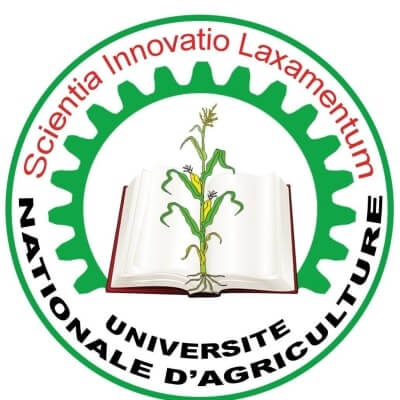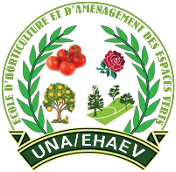Benin
Cluster Officers
 University Name: National University of Agriculture
University Name: National University of Agriculture- University Representative Name: Mr. Menouwesso Harold Hounhouigan (Lecturer Researcher)
 Farm Name: SAIN (Solidarites Agricoles Integrees)
Farm Name: SAIN (Solidarites Agricoles Integrees)- Farm Representative Name: Dr. Gbenou Pascal
Benin, located in West Africa, has a rich agricultural heritage deeply rooted in traditional farming practices. Historically, agriculture has been a fundamental part of Benin’s economy, with the majority of the population engaged in small-scale farming activities.
Traditional agriculture in Benin typically involves subsistence farming, with crops such as maize, cassava, yams, and millet being cultivated for local consumption. Farmers often rely on manual labor and traditional farming techniques passed down through generations.
Despite its significance, traditional agriculture in Benin faces numerous challenges, including limited access to modern farming inputs, unpredictable weather patterns, soil degradation, and low productivity. Additionally, the reliance on conventional farming methods can contribute to environmental degradation and deforestation.
In recent years, Benin has shown a growing commitment to enhancing agricultural sustainability through the adoption of green technology and modern farming practices. This shift aims to address the challenges faced by traditional agriculture while promoting environmental stewardship and economic growth.
Key Initiatives and Advancements
Agroecology and Organic Farming: Benin is increasingly embracing agroecological principles and organic farming practices to promote soil health, biodiversity, and resilience to climate change. This includes the use of organic fertilizers, crop rotation, and agroforestry techniques to enhance soil fertility and productivity.
Smart Irrigation Systems: The adoption of smart irrigation systems, such as drip irrigation and rainwater harvesting, helps optimize water usage and improve crop yields, particularly in arid regions of the country. These technologies enable farmers to efficiently manage water resources while reducing water waste and environmental impact.
Precision Agriculture: The implementation of precision agriculture techniques, including the use of drones, satellite imagery, and soil sensors, allows farmers to monitor crop growth, soil conditions, and pest infestations with precision. This data-driven approach helps optimize resource allocation, minimize inputs, and maximize yields, contributing to sustainable agricultural practices.
Renewable Energy Solutions: Benin is exploring renewable energy solutions, such as solar-powered irrigation pumps and biogas digesters, to reduce reliance on fossil fuels and promote energy efficiency in agriculture. These initiatives not only lower carbon emissions but also offer cost-effective and sustainable energy alternatives for rural farmers.
Benin Cluster includes
Universities

National University of Agriculture
The National University of Agriculture (UNA) – Excellence and Innovation in Agricultural Education is not only an institution dedicated to training competent professionals, but also a centre for the advancement of scientific research and development of various disciplines. These disciplines include agronomy, sociology, economics, agropastoralism, fishing, forestry, and environmental ecology.
With nine (9) professional schools, the UNA offers programs leading to professional licenses and professional masters. The courses offered range from the Conservation and Transformation of Agricultural Products to Rural Sociology and Agricultural Extension, through Aquaculture, Tropical Forestry and Management of Agricultural and Agri-food Businesses.

EHAEV
The School of Horticulture and Green Space Development (EHAEV) is a school of professional training, development, research, and development support.
It is created to train, at the Bachelor level,
competent students and professionals in the fields of horticulture and the development of green spaces.
Graduates from this school are capable of undertaking, teaching, and putting their skills at the service of institutions working in the field of agriculture, particularly horticulture and the development of
green spaces.
Farms
SAIN (Solidarités Agricoles Intégrées) Farm
The SAIN (Solidarités Agricoles Intégrées) Farm in Benin is a completely integrated and agroecological farm. Established since 1998, the SAIN farm is based in Kakanitchoé, a small village in Adjohoun in the Southeast of Benin, about 45 km from Porto-Novo, the administrative capital of the country. It practices a completely integrated production system that combines plant and animal production and agri-food transformations. In over 20 years of activity, the farm has remained purely agroecological with great respect for the environment.
Since 2003, it has set up a training device, thus becoming the SAIN Farm School. It aims to train disadvantaged young people in agricultural professions, integrated and sustainable agricultural practices. The SAIN Farm School offers a professional training device rooted in agroecological practices, in line with local realities. The training approach is « Learning by doing ».
Agro-Revolution Cooperative
It is made up of young professional market gardeners, most of whom have completed higher education at
the National University of Agriculture (UNA) and the Faculty of Agronomic Sciences (FSA) of Abomey-
Calavi, and who have mostly settled on the Agro-Revolution market gardening site located in the commune
of Sèmè-Podji since 2018.
Consisting of women and men, we have a total area of 20 hectares, are oriented towards production that
respects ecology, and produce fruit vegetables, leafy vegetables, and others. Our flagship crops are Carrot,
Tomato, Cabbage, African Nightshade, Bell Pepper, and Onion.
